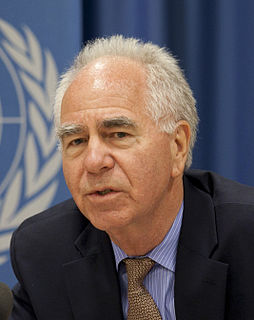 W
W22 Gia Long Street, now 22 Lý Tự Trọng Street, is an apartment building in Ho Chi Minh City, the largest city in Vietnam. In 1975, photojournalist Hubert van Es, working for UPI, captured an iconic photo of U.S government employees evacuating the city by helicopter during the Fall of Saigon, the last major battle of the Vietnam War. The evacuation was code named Operation Frequent Wind.
 W
WThe administrator of the United States Agency for International Development is the head of the United States federal government's Agency for International Development (USAID).
 W
WThe Beltsville Information Management Center (BIMC), formerly named the Beltsville Messaging Center (BMC) and the Beltsville Communications Center, is a United States Department of State facility located in Beltsville, Maryland, next door to the U.S. Special Collection Service (SCS). It serves as the primary relay facility for the Diplomatic Telecommunications Service and services the communications needs of various U.S. government programs and agencies, including the SCS.
 W
WThe Board for International Food and Agricultural Development (BIFAD) advises the United States Agency for International Development (USAID) on issues concerning agriculture, Higher Education in developing countries, and food insecurity. BIFAD was established by Title XII of the Foreign Assistance Act, and both the BIFAD board and Title XII recognize the critical role of U.S. land-grant institutions in food and agricultural security, domestically and abroad. BIFAD consists of seven board members appointed by the White House, four of which must come from the US Academic community. The board's mission is to draw on higher educations's expertise and scientific knowledge to advise the U.S. international assistance efforts along with domestic efforts to end food insecurity.
 W
WDr. Neil Boothby is a psychologist and former US Government special advisor and senior coordinator to the USAID administrator on Children in Adversity, and former director of the Program on Forced Migration and Health at the Columbia University Mailman School of Public Health. Currently, he is the founding Director of the Global Center for the Development of the Whole Child at the University of Notre Dame. His research focuses on the psychosocial consequences of organized violence on children. As a senior representative of UNICEF, UNHCR, and Save the Children, he has worked for more than 25 years with children in crises in Africa, Asia, Latin America, and Eastern Europe and is an internationally recognized expert and advocate for children affected by war and displacement. He has received numerous awards for his work on behalf of war-affected children, including the Red Cross International Humanitarian of the Year Award, the Mickey Leland Award, the United Nation's Golden Achievement Award for Social Services, and Duke University's Humanitarian Service Award.
 W
WCenter for Reproductive Law and Policy v. Bush, 304 F.3d 183, was a case in which the United States Court of Appeals for the Second Circuit upheld the Bush Administration's re-imposition of the Mexico City Policy, which states that "the United States will no longer contribute to separate nongovernmental organizations which perform or actively promote abortion as a method of family planning in other nations."
 W
WCARPE the Central African Regional Program for the Environment is a United States Agency for International Development (USAID) initiative aimed at promoting sustainable natural resource management in the Congo Basin. It aims at protecting the forest in countries such as Gabon, Cameroon and the Republic of the Congo providing critical habitat for biodiversity conservation. CARPE works to reduce the rate of forest degradation and loss of biodiversity by supporting other groups and working together towards an increased local, national, and regional framework for natural resource management.
 W
WDKT International (DKT) is a charitable non-profit organization that promotes family planning and HIV prevention through social marketing. The Washington, D.C.-based DKT was founded in 1989 by Phil Harvey and operates in 90 countries in Africa, Asia, and Latin America. Its revenue largely comes from sales of low-cost contraceptives. In 2020, DKT sold 825 million condoms, 103.5 million cycles of oral contraceptives, 16.6 million injectable contraceptives, 15.9 million emergency contraceptives and 4 million intrauterine devices (IUDs), among other products. This is equivalent to 48.6 million couple years of protection (CYPs), making DKT one of the largest private providers of contraceptives in the developing world. The average cost per CYP was US$1.57. DKT's marketing strategies have included advertising, creating location-specific brands, working with social networks and militaries, and targeting high-risk groups. DKT also works with health workers and clinics that provide family planning products, information, and services. Charity Navigator has given DKT a four-star rating for its finances, with 96.4% of its budget going towards programs and 3.5% towards headquarters expenses and fund raising in 2019.
 W
WThe Foreign Assistance Act is a United States Act of Congress. The Act reorganized the structure of existing U.S. foreign assistance programs, distinguishing between military from non-military aid, and created a new agency, the United States Agency for International Development (USAID) to administer non-military, economic assistance programs. President John F. Kennedy signed the Act on November 3, 1961, and issued Executive Order 10973, detailing the reorganization.
 W
WGLIFAA is the officially recognized organization representing lesbian, gay, bisexual and transgender etc. (LGBT+) personnel and their families in the United States Department of State, U.S. Agency for International Development (USAID), Foreign Commercial Service, Foreign Agricultural Service, and other agencies and entities working in foreign affairs in the U.S. Government. The acronym comes from its original name, Gays and Lesbians in Foreign Affairs Agencies. As of 2014, the organization goes by GLIFAA and uses the slogan "LGBT+ pride in foreign affairs agencies" to underscore its inclusive composition. GLIFAA was founded in 1992 by fewer than a dozen employees who faced official harassment and potential loss of their jobs simply because of their sexual orientation. The organization has grown to hundreds of Foreign Service, Civil Service, and contract personnel and their families serving in Washington, throughout the U.S., and at U.S. embassies and missions around the world. Members also include retirees and straight allies in government agencies, while other supporters are affiliate members.
 W
WThe International Foundation for Electoral Systems (IFES) is an international, non-profit organization founded in 1987. Based in Arlington, VA - this organization helps develop and provides assistance and support for elections in new and emerging democracies. Since 1987, IFES has provided assistance in 145 countries and currently has programs in more than 20 countries throughout Asia-Pacific, Africa, Eurasia, Middle East and North Africa, and Americas.
 W
WNutribun, also referred to as Nutri-bun or Nutriban, is a bread product used in elementary school feeding programs in the Philippines to combat child malnutrition, initially as part of the United States Agency for International Development (USAID)'s Food for Peace program from 1971 to 1997, and later as part of the child health programs of various Philippine cities.
The Office of Transition Initiatives (OTI) is part of the United States Agency for International Development (USAID) Bureau for Democracy, Conflict, and Humanitarian Assistance (DCHA) and was developed to provide fast, flexible, short-term assistance to take advantage of windows of opportunity to build democracy and peace. It seeks to lay the foundations for long-term development by promoting reconciliation, jump starting economies and helping stable democracy take hold.
 W
WOperation Unified Response was the United States military's response to the 2010 Haiti earthquake. It was conducted by Joint Task Force Haiti and commanded by United States Southern Command (USSOUTHCOM) Military Deputy Commander Lieutenant General Ken Keen, although the overall U.S. government response was headed by Rajiv Shah, administrator of the United States Agency for International Development (USAID).
 W
WThe United States Mission to the UN Agencies in Rome serves as a link between the Rome-based international organizations and the U.S. government. Rome is unusual in that there are three U.S. Ambassadors located there; the other U.S. diplomatic missions in Rome are the Embassy of the United States, Rome, and the Embassy of the United States to the Holy See. Together they are referred to as "Tri-Mission Community" in Rome.